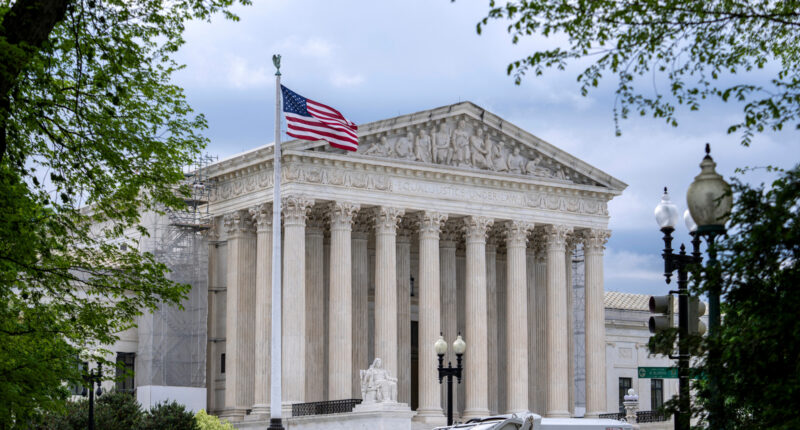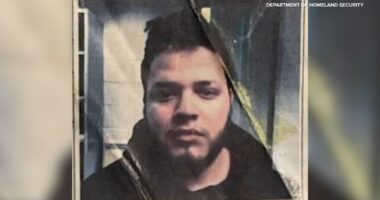The Supreme Court is set to convene on Friday to make decisions on the last six cases of its term. One of the cases involves President Donald Trump’s push to implement his executive order that denies birthright citizenship to children born in the U.S. to parents who are in the country illegally.
The justices take the bench at 10 a.m. for their last public session until the start of their new term on Oct. 6.
This executive order on birthright citizenship has faced opposition from three lower courts, resulting in a nationwide block. The Trump administration has urgently appealed to the Supreme Court to modify the current court orders preventing the citizenship policy changes from being enforced across the country.
The key question for the Supreme Court justices to consider is whether to restrict the power of judges to issue injunctions that apply nationwide. This issue has been a concern for both Republican and Democratic administrations over the past decade, as such injunctions have posed challenges for policy implementation.
These nationwide court orders have emerged as an important check on Trump’s efforts and a source of mounting frustration to the Republican president and his allies.
Decisions also are expected in several other important cases.
The court seemed likely during arguments in April to side with Maryland parents in a religious rights case over LGBTQ storybooks in public schools.
Parents in the Montgomery County school system, in suburban Washington, want to be able to pull their children out of lessons that use the storybooks, which the county added to the curriculum to better reflect the district’s diversity.
The school system at one point allowed parents to remove their children from those lessons, but then reversed course because it found the opt-out policy to be disruptive. Sex education is the only area of instruction with an opt-out provision in the county’s schools.
The justices also are weighing a three-year battle over congressional districts in Louisiana that is making its second trip to the Supreme Court.
Before the court now is a map that created a second Black majority congressional district among Louisiana’s six seats in the House of Representatives. The district elected a Black Democrat in 2024.
Lower courts have struck down two Louisiana congressional maps since 2022 and the justices are considering whether to send state lawmakers back to the map-drawing board for a third time.
The case involves the interplay between race and politics in drawing political boundaries in front of a conservative-led court that has been skeptical of considerations of race in public life.
At arguments in March, several of the court’s conservative justices suggested they could vote to throw out the map and make it harder, if not impossible, to bring redistricting lawsuits under the Voting Rights Act.
Free speech rights are at the center of a case over a Texas law aimed at blocking kids from seeing online pornography.
Texas is among more than a dozen states with age verification laws. The states argue the laws are necessary as smartphones have made access to online porn, including hardcore obscene material, almost instantaneous.
The question for the court is whether the measure infringes on the constitutional rights of adults as well. The Free Speech Coalition, an adult-entertainment industry trade group, agrees that children shouldn’t be seeing pornography. But it says the Texas law is written too broadly and wrongly affects adults by requiring them to submit personal identifying information online that is vulnerable to hacking or tracking.
Copyright © 2025 by The Associated Press. All Rights Reserved.
















